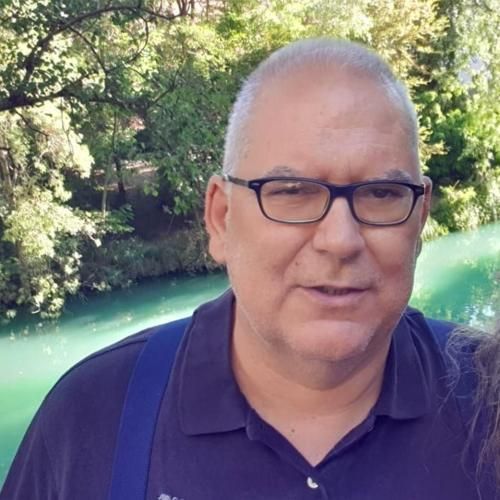
JOSE LUIS
MARTINEZ GUITARTE
Catedrático de Universidad
Department: FÍSICA MATEMÁTICA Y DE FLUIDOS
Center: FACULTAD DE CIENCIAS
Area: Cell Biology
Research group: BIOINFORMÁTICA Y ECOTOXICOLOGÍA MOLECULAR DE INVERTEBRADOS
Email: jlmartinez@ccia.uned.es
Personal web: https://www.uned.es/universidad/docentes/ciencias/jose-lu...
Doctor by the Universidad Autónoma de Madrid with the thesis Secuencias activadas por choque térmico en los telómetros de Chiromuns thummi 1999. Supervised by Dr. José Luis Díez Cortes.
I graduated in Biology at the UCM in 1994; I presented the doctoral thesis at the Center for Biological Research (CIB), belonging to the CSIC (2000). After two postdoctoral periods in Boston and Lleida, I joined UNED in 2004, and since January 2016, I have been the PI of the Biology and Environmental Toxicology Group. My research focuses on the analysis of multi-stress, mainly considering the pollution and climate change with molecular and cellular methods in invertebrates. I have studied the impact of mixtures of chemicals and the response at different temperatures mimicking climate change. As model species, I use an insect, Chironomus riparius, and a mollusk, Physella acuta, analyzing the gene expression by Real-Time PCR. I combine it with other methods, such as enzymatic activity studies, comet assay, western blot, and immunocytochemistry, to elucidate the mechanisms involved in response to the toxicants. In this sense, the results obtained have extended the use of different biomarkers by increasing the described genes used in both species (with designed arrays of 48 genes involving different processes such as endocrine regulation, stress, detoxification mechanisms, DNA repair, immunity, and energy metabolism). Furthermore, I have improved our knowledge of the complex response to mixtures at the molecular level, showing that diverse interactions involving different genes can also be opposite to the same combination of pollutants. Additionally, I have shown that a mild increase in three degrees can cause different responses to a toxicant. Finally, in collaboration with Dr. Pestana (University of Aveiro) and Dr. Navarro (University of Eastern Finland), I showed the impact of microplastics at the molecular level in aquatic invertebrates, mainly affecting immunity and other relevant processes in survival. Overall, I have contributed to better comprehension at the molecular level of the mechanisms involved in the response of aquatic invertebrates and the visibility of molecular methods in environmental toxicology. All the research has been published in international journals and has been presented at international conferences. The research has been funded by two Plan Nacional (2015 and 2018) projects and several small UNED projects (Santander Europa Investigación 2017-2018-2019). All this work has allowed me to analyze transcriptomes to seek new genes of interest. As a result, I have experience in transcriptome analysis, and it allows me to study other species such as Alpine chironomids. As a collaborator in different research projects, I am now analyzing other species such as Daphnia longispina, Gambusia holbrooki, Artemia franciscana, Helix aspersa, and others. The collaborations are with laboratories from Tunisia, Italy, and Portugal. In addition, I have worked to get a better approach with Real-Time PCR to improve the results and reduce cost. In this sense, the results obtained have allowed standardization of the process. Now, with a robot in the laboratory, it is possible to start the field analysis with a standardized methodology. The research aims to implement the molecular methods in the present standard toxicity test to update the methods used in environmental toxicology and bring them to the 21st century. I have collaborated with different laboratories from INIA, Complutense University, University of Aveiro, Science Museum of Trento, University of Eastern Finland, and the University of Carthage during the last ten years. Furthermore, I am collaborating with other groups and institutions by supporting molecular methodology and gene expression analysis. As a divulgator, I recorded several radio programs explaining the research that we do in the laboratory and the relevance of microplastics in the present world. Also, I have participated in a TV program focused on the research of the Centro de Astrobiología.









